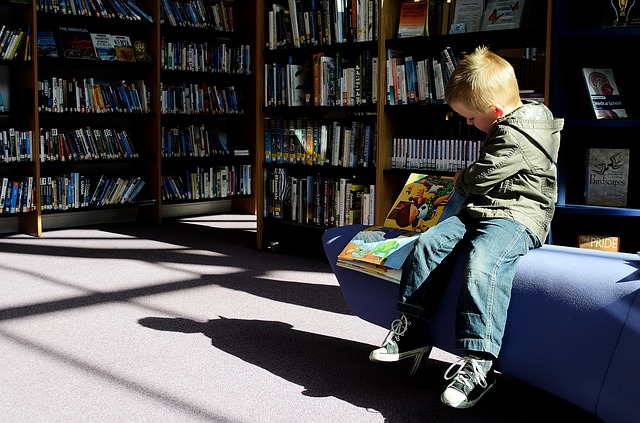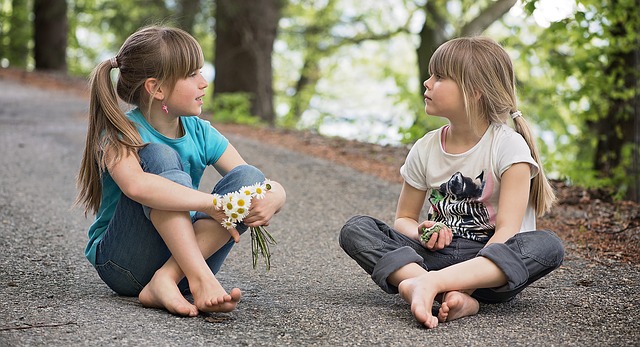Popular Children’s Poems in Russian — Part II Posted by Maria on Aug 8, 2016 in Culture
We are continuing from last week’s post about children’s poetry. The poems (стихотворения) in this and the previous post are likely to ring a bell to most people who grew up in Russian-speaking households. I will cite two short poems and excerpts from longer poems and will point out interesting structures and vocabulary.
Агния Барто — Резиновая Зина
Купили в магазине
Резиновую Зину,
Резиновую Зину
В корзинке принесли.Она была разиней,
Резиновая Зина,
Упала из корзины,
Измазалась в грязи.Мы вымоем в бензине
Резиновую Зину,
Мы вымоем в бензине
И пальцем погрозим:Не будь такой разиней,
Резиновая Зина,
А то отправим Зину
Обратно в магазин.
Резина is rubber, so резиновый is the corresponding adjective, “made of rubber.” Зина is the short for Зинаида, a girl’s name. Резиновая Зина is, therefore, a rubber doll named Зина.
Разиня is a scatterbrain. Измазаться is to get covered with something; here with dirt — в грязи (nominative грязь). Вымыть is a perfective counterpart of мыть (to wash) and means to wash once and completely. Грозить literally means “threaten,” but here, used as погрозить пальцем, it means “to wag your finger at someone (telling them to behave).”
Сергей Михалков — А что у вас? (excerpt)
Кто на лавочке сидел,
Кто на улицу глядел,
Толя пел, Борис молчал,
Николай ногой качал.Дело было вечером,
Делать было нечего.Галка села на заборе,
Кот забрался на чердак.
Тут сказал ребятам Боря
Просто так:– А у меня в кармане гвоздь.
А у вас?– А у нас сегодня гость.
А у вас?– А у нас сегодня кошка
Родила вчера котят.
Котята выросли немножко,
А есть из блюдца не хотят.– А у нас на кухне газ.
А у вас?– А у нас водопровод.
Вот.– А из нашего окна
Площадь Красная видна.
А из вашего окошка
Только улица немножко.
The “кто + verb” structure in the first sentence means “some…, while others…” So, “кто на лавочке сидел, кто на улицу глядел” means “some were sitting on a bench, and some were looking out at the street.”
“Дело было вечером” means “It was evening time” or “This happening in the evening.” Дело literally means “affair, business,” but here it refers to the setting. “Делать было нечего” means “there was nothing to do.” You can also use similar constructions in the present tense: “Нам нечего делать” (We have nothing to do).
As we saw in the previous post, у + genitive signals possession, e.g. “А у нас на кухне газ” (We have gas in the kitchen — presumably, a gas stove). What’s more interesting here is the use of the conjunction “а.” In the affirmative sentences, it is used to give new/additional information: “А у нас сегодня гость” (This could be approximated as “So we have a guest over today”) or “А у нас водопровод” (“And we have indoor plumbing”).
It is also used to ask the switch to the other person in the conversation (“over to you” type of signal): “А у вас?” (“What about you?”) That’s the reason we say “Я из России, а вы?” (“I’m from Russia, and you?”) and not “и вы?”
“А из нашего окна Площадь Красная видна” means “You can see Red Square from our window.” Anything that can be seen may be described with the short adjective “виден/видно/видна/видны.” To say “I can’t see,” you can say “Мне не видно.” Similarly, “I can’t hear” is “Мне не слышно.” Note the inversion of the adjective and noun in “Площадь Красная.” This is done partly to preserve the meter and partly for dramatic effect.
What other children’s poems/poets do you know in Russian? Can you recite any?

Build vocabulary, practice pronunciation, and more with Transparent Language Online. Available anytime, anywhere, on any device.






Comments:
Алан:
Наш любимый стих – «Где обедал, воробей?» И «Мячик» (наша Таня громко плачет…) Моя дочь (8 лет) кто изучает русский язык любит эти стихи.
Большое спасибо!
Maria:
@Алан Спасибо, Алан! Да, “Мячик” — это классика!